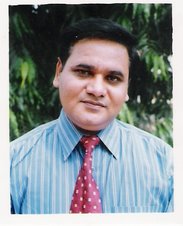The Famous Headmaster of Rugby
“Thomas Arnold, headmaster of the Rugby school and founder of modern public school system saw team sport like cricket and rugby not just outdoor play, but an organized way of teaching English boys the discipline, the importance of hierarchy, the skills, the codes of honour and leadership qualities that helped them build and run British empire.” ( Textbook in History for IX)
Thomas Arnold
Thomas Arnold (1795-1842), Mathew Arnold's father, served as headmaster of Rugby School from 1828 until 1841. During his superintendence Rugby attained a widespread reputation as a place of intellectual, moral, and religious discipline, where healthy characters were formed, and young men were trained for the duties, struggles, and responsibilities of life.
He was convinced of the necessity for reform. It was important to teach boys something more than the bleak rigidities of the ancient tongues; but how much more important to instill into them the elements of character and the principles of conduct! His great object, throughout his career at Rugby, was, as he repeatedly said, to "What we must look for here is, first, religious and moral principle; secondly, gentlemanly conduct; thirdly, intellectual ability."
Rugby School
Arnold took much broader view of the objects of education realized that the great end and aim of education was to build character; learning was only a subservient. In the public school system at Rugby he found an instrument which was capable of serving his ends. He, however, did not attempt to revolutionize but accepted the system as whole, rejecting some parts and developing others with the object of creating conditions under which a boy’s character could grow on right lines. Like any other reformer he faced stiff resistance from the trustees and there were moments which could have occasioned his resignation.
He allowed liberty to the boys but with caution that freedom given to them must be exercised for good. He sacked many boys from school who had misappropriated their liberty. He brought about changes in the status of masters and warranted their undivided interest in their duty. He raised school fees to increase salaries of the teachers.
Arnold laboured strenuously to make direct religious teaching effective for stimulating in them quality of moral thoughtfulness which he valued so much. He was inflexible in what he thought was right. He could succeed with the better support of boys who could not resist influence of a man so transparently sincere, a man who was afraid of nobody.
The game of Rugby owes its name to the school. The story has been known to be a myth since it was first investigated by the Rugbeian Society in 1895. There were no standard rules for football during Webb Ellis's time at Rugby (1816–1825) and most varieties involved carrying the ball (a forerunner of what is currently known as "American Football"). The games played at Rugby were organized by the students and not the masters, the rules of the game played at Rugby and elsewhere were a matter of custom and were not written down.
Former pupils of Rugby include Lord King and Lord Lang (ex-MPs); A N Wilson and Salman Rushdie (novelists);
Marmaduke Hussey (former Chairman of BBC Governors); David Croft (TV scriptwriter); Sir Ewen Fergusson (former UK Ambassador, Paris); Robert Hardy, Francesca Hunt (actors); Sir Campbell Adamson (former Director of the CBI); Chris Brasher; Zia Mahmood (World Bridge Champion); Andrew Rawnsley, Richard Addis, Tim Butcher and Isabel Wolff (journalists); Alison Campbell (1st female RAF fast jet pilot).
In 1841, one year before his death, he was appointed Regius Professor of Modern History at Oxford, a place he really deserved.


No comments:
Post a Comment